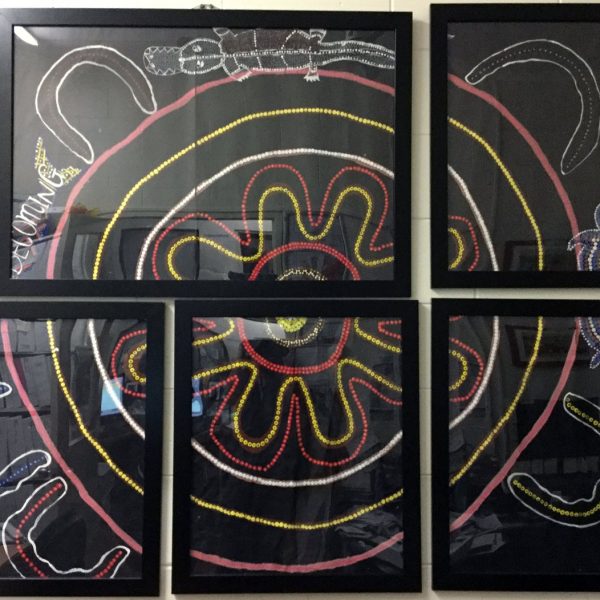Understanding Reconciliation in the lead up to National Reconciliation Week

National Sorry Day on 26 May marks the lead into National Reconciliation Week, acknowledged from 27 May to 3 June 2023.
Participating in events and acknowledgements such as National Sorry Day and National Reconciliation week can support early childhood education and care (ECEC) services to reflect on their journey of reconciliation, including how Aboriginal and Torres Strait Islander cultures, histories, languages, and knowledge systems are embedded in everyday practices.
ACECQA has prepared the following advice about reconciliation to support. To access this advice in full please see here.
Reconciliation and the approved learning frameworks
Key changes to the refreshed approved learning frameworks (Belonging, Being and Becoming: The Early Years Learning Framework in Australia [EYLF V2.0 2022] and My Time Our Place: Framework for School Age Care in Australia [MTOP V2.0 2022] include:
- strengthening Aboriginal and Torres Strait Islander perspectives throughout the frameworks including the vision, principles, practices and outcomes
- introducing a new principle of Aboriginal and Torres Strait Islander perspectives
- updating the principle of ‘cultural competence’ with ‘cultural responsiveness’.
These changes aim to advance reconciliation and emphasise the importance of genuine and authentic approaches to embedding Aboriginal and Torres Strait Islander perspectives in practice, philosophy and service operations.
Alongside the EYLF V2.0 2022 and/or MTOP V2.0 2022, the five dimensions of reconciliation provide a framework for reflection when considering how your service’s practices support cultural responsiveness.
The EYLF V2.0 2022 and MTOP V2.0 2022 describe cultural responsiveness as:
a contemporary way to think about culture and enables individuals and organisations to be respectful of everyone’s backgrounds, beliefs, values, customs, knowledges, lifestyles and social behaviours. Being culturally responsive includes a genuine commitment to take action against discrimination in any form, embedding Aboriginal and Torres Strait Islander perspectives in all aspects of the curriculum and working collaboratively with culturally and linguistically diverse children and families.
(EYLF V2.0 2022 and MTOP V2.0 2022)
Cultural responsiveness in education and care settings is dependent on service and community contexts and requires careful consideration on the implementation of genuine cultural practices.
For example, service leaders and educators may consider how:
- they provide an intercultural space for children, which blends Aboriginal and Torres Strait Islander knowledge systems with the western ways of teaching and learning
- their practice of acknowledging Country shows respect for the traditional custodians and the land and presents opportunities to share historical knowledge or provoke conversations and curiosities about Aboriginal and Torres Strait Islander cultures and histories.
How other services are practicing reconciliation
ACECQA have shared a number of examples of how services across the country have embedded First Nations culture into education and care practice, to ensure a culturally responsive, sensitive and respectful approach.
Some examples that have been shared include:
Adamstown Community Early Learning and Preschool shows a strong commitment to reconciliation in their Connecting to Country Bush Program, aligning their risk-based philosophy to First Nations cultures on the lands of the Awabakal people at Glenrock National Park.
Awabakal Preschool- Wickham respects, reflects, and celebrates culture and diversity, including place of origin and its inclusive partnerships with children and families. The service works inclusively with families to ensure cultural programs are authentically implemented. Their staffing team are primarily Aboriginal and Torres Strait Islander educators, ensuring traditional cultural practices are embraced and embedded and that children and families feel a sense of belonging.
Balnarring Preschool works collaboratively with their community partners, establishing an annual festival to honour and celebrate Australia’s First Peoples within the broader community. The annual festival, facilitated by the service in collaboration with local First Peoples, provides an opportunity for community members to continue their learning and understanding of the world’s oldest living culture.
Wagner Road Early Childhood Centre and Kindergarten has built a strong reciprocal partnership with a local Aboriginal Elder, engaging in several projects over many years with mutually beneficial outcomes to both the service and the local Aboriginal community. This included the service supporting the local Elder to publish his stories of culture, which were shared in the service and wider community.
Where to from here?
In the lead up to National Reconciliation Week, ACECQA has encouraged services to take the opportunity to reflect on their unique service contexts and innovative practices that embed Aboriginal and Torres Strait Islander perspectives.
As a start, services have been asked to think about opportunities to:
- learn about local places of significance (such as places of corroboree, trade, stone quarries) and what they are today
- show meaningful, purposeful and respectful acknowledgements to Country
- build connections to Aboriginal Land Councils and/or Local Elders
- support local Aboriginal and Torres Strait Islander businesses
- become curious about First Nations history and act as co-researchers and learners alongside children to build knowledge and truth telling
- embed knowledge of Aboriginal and Torres Strait Islander cultures and history into everyday conversations with children. For example, when talking with children about sustainability, intentionally share information or engage children in research into First Nations ways of caring for the land and waterways.
Additional resources to support services in their reconciliation journey include Let’s Talk About The Theme for NRW 2023 and What is National Reconciliation Week?
Popular

Policy
Practice
Quality
Provider
Research
Safety starts with supervision: responding to real risks in ECEC
2025-07-07 10:30:58
by Fiona Alston

Policy
Practice
Provider
Quality
Research
Workforce
Beyond the headlines: celebrating educators and the power of positive relationships in early learning
2025-07-07 10:00:24
by Fiona Alston

Workforce
Policy
Quality
Practice
Provider
Research
ECEC must change now, our children can’t wait for another inquiry
2025-07-02 07:47:14
by Fiona Alston













